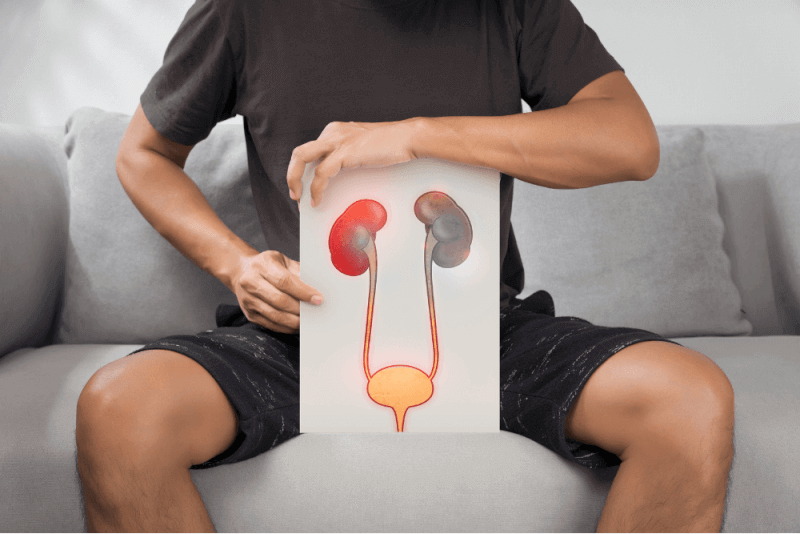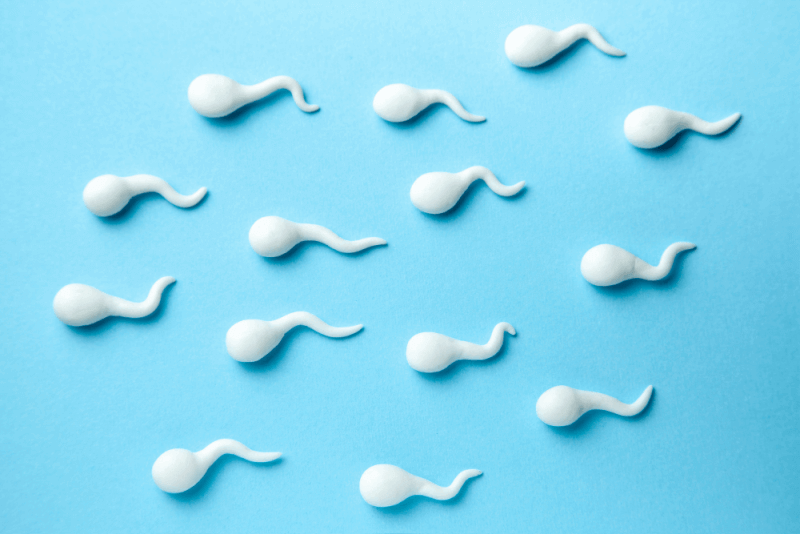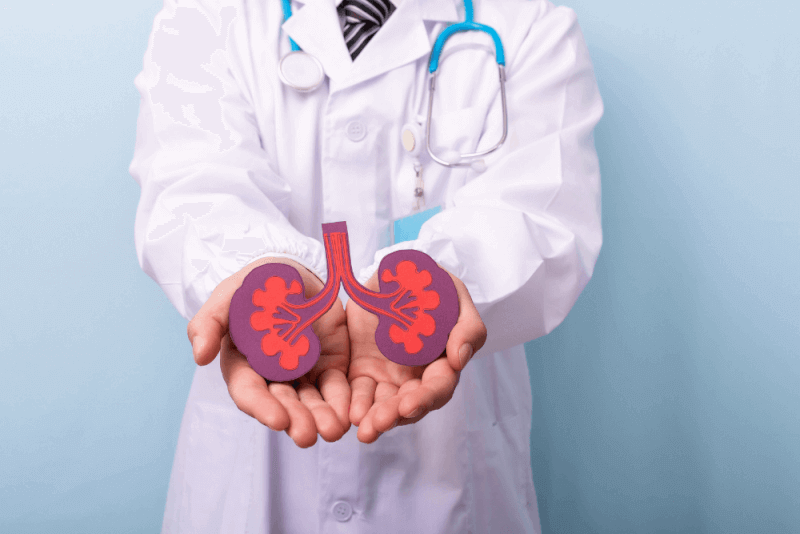30 Second Summary
- Acute kidney failure is a sudden loss of kidney function.
- The kidneys remove waste and excess fluid from the body.
- Acute kidney failure can occur due to many things, such as dehydration, medications, infections, injuries and illnesses.
- Acute kidney failure can be fatal if left untreated.
What is acute kidney failure?
Acute renal failure is a condition in which the kidneys suddenly become unable to filter waste products from the blood. When the kidneys lose their filtering ability, dangerous levels of waste accumulate in the blood. This causes the chemical structure of the blood to deteriorate.
Acute kidney failure is also called acute kidney injury and develops suddenly over several days. Acute renal failure is especially common in intensive care unit patients.
Acute renal failure, which can be fatal if not treated promptly, requires intensive treatment. If patients are in good general health, treatment can restore healthy kidney function.
Acute renal failure diagnosis
Some tests are used to confirm the diagnosis of patients with symptoms of acute renal failure. These tests include the following:
- The patient's 24-hour urine is collected to monitor urine output. This test is called urine output monitoring.
- Urinalysis is also performed in acute renal failure. This test looks at the substances in the urine sample. The parameters evaluated include items such as the density and color of urine.
- Urea and keratin, which should be removed from the blood by the normal functioning of the kidneys, accumulate in the blood when acute renal failure occurs. A blood test is used to determine this.
- Imaging methods such as ultrasound and CT are also used to examine kidney damage. It is one of the diagnostic methods that are especially effective in determining the factors that may cause obstruction of the urinary tract.
- Finally, renal biopsy is used especially in the diagnosis of glomerulonephritis.
Symptoms of acute renal failure
The symptoms caused by acute kidney injury vary depending on the causative agent. Symptoms that can be seen in acute renal failure include the following:
- Chest pain
- Pressure felt in the chest
- In severe cases, seizures or coma
- Nausea
- Blurred consciousness
- Confusion
- Shortness of breath
- Fatigue
- Fatigue
- Swelling in the legs, around the eyes and ankles
- Very little urine output from the body
- Burnout
- Weakness
- Loss of appetite
- Spiritual and mental changes
- Irregular heartbeat
Causes of acute renal failure
Acute renal failure is caused by the development of a health condition that affects the kidneys. These health problems include the following:
Impaired blood flow to the kidneys
Diseases and health conditions that can slow down blood flow in the kidneys and therefore cause kidney damage include
- Blood pressure medicines
- Blood and fluid loss
- Heart attack
- Infection
- Heart disease
- Liver failure
- Severe burns
- Aspirin
- Ibuprofen
- Naproxen sodium
- Severe dehydration
- Severe allergic reaction
Kidney damage
Kidney diseases and the drugs used in the treatment of these diseases damage the kidneys and cause acute renal failure:
- Cholesterol buildup in the kidneys that can cause obstruction of blood flow
- Blood clots in the veins and arteries in and around the kidneys
- Inflammation of small filters in the kidneys
- Hemolytic uremic syndrome, a disease caused by premature destruction of red blood cells
- Infections
- Immune system disorders such as lupus
- Some chemotherapy drugs
- Antibiotics
- Dyestuffs used in imaging systems
- Rare diseases such as scleroderma that affect the skin and connective tissues
- Thrombotic thrombocytopenic purpura, a rare blood disorder
- Alcohol
- Heavy metals
- Drug use
- Plugging of muscle tissue
- Breakdown of tumor cells that can cause the release of toxins that can lead to kidney damage
Urinary obstruction in the kidneys
Health problems that can cause blockage of the urinary tract can lead to acute kidney damage. These situations include the following:
- Prostate cancer
- Bladder cancer
- Damage to the nerves that control the bladder
- Blood clots in the urinary tract
- Kidney stone
- Cervical cancer
- Prostate enlargement
- Colon cancer
Risk factors for acute renal failure
Acute renal failure is always caused by a different health problem. There are therefore risk factors that may increase the risk of acute renal failure. These factors include the following:
- Being hospitalized, especially for diseases requiring intensive care
- Advanced age
- Blockages in the arms or legs
- Diabetes
- High blood pressure
- Heart failure
- Kidney diseases,
- Liver diseases
- Some types of cancer and treatments
Complications caused by acute kidney injury
Complications that can be caused by acute kidney injury include
- The first complication that acute renal failure can cause is fluid accumulation in the lungs that can affect breathing.
- Acute kidney injury can lead to inflammation of the lining of the heart. This can cause patients to experience chest pain.
- The accumulation of fluid in the body causes blood chemistry to become unbalanced. This can lead to the appearance of muscle weakness.
- In rare cases, acute kidney injury can lead to permanent kidney failure. People with end-stage renal disease need dialysis or kidney transplantation to survive.
- The most serious complication of acute renal failure is life-threatening due to loss of kidney function.
Treatment of acute renal failure
The treatment of acute renal failure includes treatment procedures that must be carried out under hospital conditions. How soon the treatment responds depends on the root cause of the disease. In addition, reasons such as the age and general health status of the patient are also related to the general condition of the patient and how long the treatment will last.
Dialysis is the main treatment for acute kidney failure. It involves the patient being connected to a dialysis machine several days a week and having their kidney function performed by an artificial machine. The alternative to dialysis is peritoneal dialysis. In this method, the patient is cleaned with a bag attached to the abdominal cavity.
Patients undergoing dialysis treatment should reduce sodium and potassium in their daily diet. Patients should also pay attention to protein and phosphorus consumption. These points increase the success rate of dialysis treatment.
The main treatment of acute renal failure is to treat the disease causing the kidney failure. During this time, dialysis treatment is used to maintain the health of the kidneys. In addition, necessary treatments are applied to prevent complications leading to acute renal failure.
People who have acute kidney failure are at high risk of developing kidney failure again in the future. For this reason, patients should not neglect their health checks afterwards.
Acute renal failure nutrition
The nutrition of patients with acute renal failure is of great importance. In order to prevent or delay complications, as well as to improve the quality of life of patients, attention should be paid to a balanced and healthy diet.
The diet list to be created for acute renal failure patients is patient-specific. When preparing the diet list, criteria such as the stages of renal failure, the presence or absence of urine output, blood values and weight should be taken into consideration.
In kidney failure, it becomes difficult to remove harmful breakdown cells such as protein creatine and uric acid from the body. The accumulation of these substances in the blood is life-threatening. Therefore, the amount of protein in their diet needs to be adjusted. Protein intake may need to be reduced to lower urea levels in the blood. However, complete cessation of protein intake is extremely important to avoid malnutrition.
Stages of acute renal failure
The typical course of acute renal failure occurs in 4 stages when any disease in patients affects kidney function.
Inception phase
The first stage is the initial phase. There are no symptoms at this stage.
Aligo anuria
The second stage is the aligo-anuria stage, when chronic symptoms of acute renal failure begin to appear. In addition to decreased urine output, hypertension and fluid retention, pulmonary edema and heart failure may develop during this period. Organisms are affected due to reduced excretion of electrolytes and endogenous waste production in the blood.
The increase of waste materials in the blood is called uremia. Among the symptoms caused by uremia are the following:
- Neurological symptoms
- Nausea
- Vomiting
- Diarrhea
- Anorexia
- Decreased appetite
- Cardiac arrhythmia
- Insomnia
- Infection
- Bleeding complications
This is also the period when dialysis treatment begins.
Polyuria
The third stage is polyuria. At this stage, kidney function begins to improve. However, this period causes loss of potassium and sodium. In addition, cardiac arrhythmia may also be seen during this period.
Renal
The last stage is the renal period. This period is the recovery period of the patients. If the renal period lasts longer than 3 months, it causes acute renal failure to turn into chronic renal failure.
How to prevent acute kidney failure?
Acute renal failure is often difficult to predict and prevent. However, it reduces the risk of acute kidney failure by paying attention to some points.
Use of pain medication without a prescription
Excessive use of painkillers such as aspirin and ibuprofen increases the risk of kidney damage. Especially people with diabetes, kidney disease and high blood pressure should use painkillers with caution.
Adopting a healthy lifestyle
A healthy and balanced diet in an active life has a positive impact on overall health. Alcohol should be limited.











